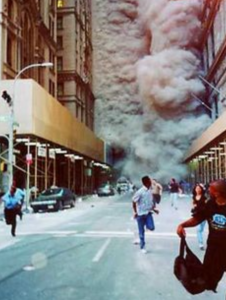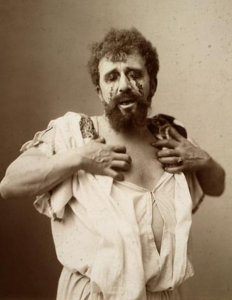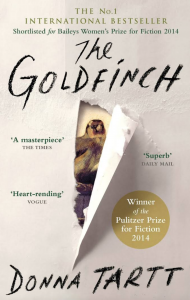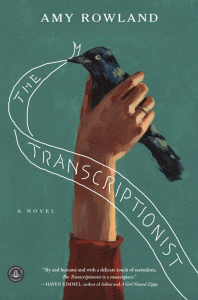
A tiny TV on silent over the printer caught our eye. We couldn’t quite figure out what the image was, maybe a fire at a local school, or a factory pumping out smoke. It was then that she said, “Oh my god, my boyfriend’s on the 62nd floor…”
Meanwhile in Downtown New York City, my future husband Henry Baum was having breakfast, about to pick up his then girlfriend from Penn Station, staring out of his window that looked out across the city. He grabbed an old cheap camera as a plane flew too low, and took one photo as it hit. He’s never developed the film, and it sits in a box behind me on my bookshelf. I guess we won’t ever develop it.
Henry still has low-flying plane phobias, and often asks me, “Does that plane look right to you?” staring out across the sea from our apartment, where planes travel a perfect low arc from England to Malaga airport here in Spain, probably one of the most unlikely routes for a terrorist act, but I guess the world is random enough these days for anything to be entirely possible at the same time. This led to his writing a novel about random events, terrorism, UFOs, and conspiracy theory.
There have been many events in the world before and since 9/11 that have killed far more people and left far more carnage, and yet these losses have not inspired us as writers in the same way. Maybe it was because it happened in a city so beloved, so classic, so legendary for making dreams come true in a way that no other city in the US is – Los Angeles may be a city of dreams, but its reputation is more about the broken kind.
Maybe it’s because we can relate to the people who lost their lives – people who walked in the parks like the parks we like to walk in, people who took their kids to the same sort of schools our kids attended, ate the same food at the same restaurants, liked the same TV shows, maybe it’s simply because they were (mostly) Americans.
To paraphrase Stalin, in terms of news media, a single death is a tragedy, but a million deaths is a statistic.
With 9/11, instead of the near-3,000 victims being shoved into one news statistic as mass tragedy has been with say, the terrorist attacks in Kabul this summer (which killed and injured over 1000 men, women, and children), the press uniquely took the time to tell us one person’s story at a time, we got to know the victims individually, so we lived through each tragedy, 2,996 times, for many years. All of these feelings were wrapped up in a national doubt and fear – did Bin Laden really do this, or did, as some have suggested, Bush, or even some higher Illuminati superpower have something to do with all this?
The conspiracy theorists have been spinning out of control ever since, but it’s thrown an international shadow of distrust over both Tony Blair and George W. Bush’s leadership in light of the spurious WMD claims, no better discussed than in the documentary focusing on Rumsfeld’s involvement, “The Unknown Known” by Errol Morris.
American fiction in particular seems to have embraced these feelings of instability, random crisis, and emotions that maybe none of us knew could actually exist. Had anything really shaken up culture since Punk Rock or Vietnam? This has resulted in almost a glut that captures this tragedy from a mass of angles. This is such a phenomenon as to have its own rather macabre categorization, “post 9/11 fiction sub-genre.”And sometimes, tellingly, “Post-Apocalyptic Fiction.”
While this may seem like exploitation fiction to some, and wildly disrespectful to those who suffered and are still suffering in various ways (my husband can’t even look at a photo of a pre-9/11 skyline) it has been something of a cathartic experience too.

Louis Bouwmeester as Oedipus, 1896
Tragedy in literature is not a new concept. Greek tragedies date back to the 5th century, and formed an inspiration for Shakespeare’s more dramatic works. The true definition of the word, “tragedy” means a plot in which through some flaw in the protagonists’ own makeup, they suffer a terrible end.
As the Early Greek audiences experienced (often authentic) death on stage, Plutarch noted that the audience reaction was highly “unexpected”, and led to the rehash of tragedy as a kind of burlesque version, the Satyr, or the Satire we are familiar with nowadays, a bumbling fool we sympathize with making a series of terrible errors on the path to demise. Presumably, the audiences had been pleasantly entertained rather than horrified by these fictions unfolding on stage.
Is there something about repeatedly visiting these themes of sudden death and violence that we are not being entirely honest about as worthy human beings? In the Poetics, Aristotle wrote that the purpose of Tragedy is to evoke a wonder born of pity and fear, and this in its way becomes a comfort. Certainly in Greek times it was a feeling of Schadenfreude (a word in German that means “harm-joy”), a “glad it wasn’t me” that was such a popular feeling at the theater that the theater itself had to change – tragedy actually uplifted people to see themselves counted out of the killing in a society where torture and murder were an everyday commodity must have been somehow a relief. Are we any different as we watch CNN on repeat?
In much the same way that World War II profoundly inspired the world of American fiction in writers such as Richard Yates (Revolutionary Road) and William Faulkner (who won a Pulitzer in ’49 and seemed to write somewhat differently as a result of two World Wars), it can be said that the paranoia and uncertainty faced by (especially) Americans after 9/11 was terrifying, and the feeling that everything is falling apart that grows out of any homeland attack, for example with Pearl Harbor, was fanned by the media and the Internet into a social phenomenon. Maybe because these sorts of events demand to be examined past anything a news channel can provide.
Maybe we’ve come along as humans in the ability to feel pain for others since the heady days of Athens, but still it remains a confusing and depressing emotion – perhaps the only way we can deal with these sorts of events in which we ourselves do not die but witness others dying in horrific ways is to examine how they came about in a controlled environment – in this case, fiction.

In Extremely Loud and Incredibly Close, Jonathan Safran Foer introduces us to Oskar, a 9-year-old boy with autism whose father is thought to be one of the jumpers. His grief brings him closer to himself and his condition, and how he relates to the world through a series of investigations into clues his father left around New York, while his grandparents relive their trauma from the Dresden Bombings, an event they experienced living in Germany 60 years before.

There’s the immersive Falling Man by Don DeLillo, examining what happens to a few of those who walked alive from the rubble, and how their lives turn into something more fractured, and yet more meaningful.
Like all most terrible events, questions remain unexplored in the rubble, now neatly cleared away and cemented over. Our questions compel us with our interior drills to dig deep, and find at least a beginning, middle, and end to the random events that we as human beings cannot predict, much like the Black Swan, never imagined to exist until discovered in the middle of an Australian lake in 1697. Until then, to say something was like a “Black Swan” was to say it could not possibly exist.
Only from sharing our experiences can we order the chaos, these Black Swan events, by imagining the answers every possible which-way, in fiction. We write about tragedy that makes no sense at all to make sense of at least some of it.
Cate Baum’s post-apocalyptic literary novel,”Land of Hope” is released April 2025
Get an Editorial Review | Get Amazon Sales & Reviews | Get Edited | Get Beta Readers | Enter the SPR Book Awards | Other Marketing Services






















Leave A Comment